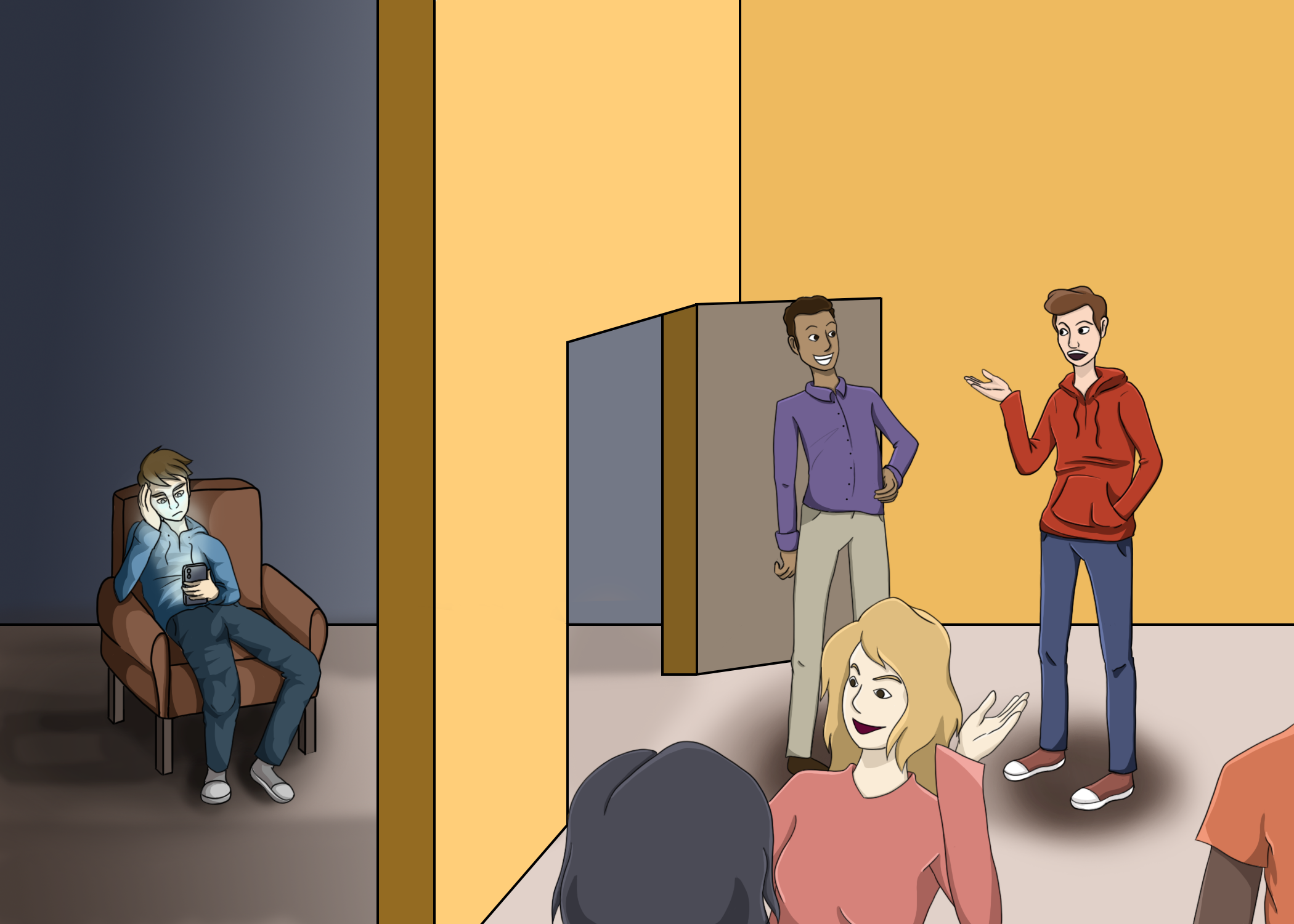Editorial | Watching student engagement drop
Introversion, lack of enthusiasm, feelings of passivity and declined motivation are just a few of the symptoms of apathy we’ve noticed in Chapman’s student body following the return to campus post-pandemic. Illustration by MORGAN SEIGLER, Illustrator
Introversion, lack of enthusiasm, feelings of passivity, declined motivation.
These are some of the acute symptoms we’ve witnessed in Chapman’s student body as a sinister new virus sweeps across campus: apathy.
With California Gov. Gavin Newsom dubbing the novel coronavirus at an “endemic” stage in the state and Chapman easing its own masking mandates in alignment, you would assume students would be more inclined than ever to resume a more “normal” college experience. But in actuality, the turnout at on-campus events catered to students has been surprisingly lacking.
Our writers see it firsthand when they set forth to cover the events hosted by various facets of student engagement on campus. We are repeatedly disheartened to hear our staff relay reports of low turnout at events like the recent University Program Board (UPB) scavenger hunt and the Student Government Association (SGA) presidential debate.
Greek life and campus clubs have also reported lower engagement as of late. Even those Orange ragers that used to cause a flurry of noise complaints are just quiet kickbacks these days.
It’s clear that the return to normalcy for our university’s social life may take some time. But after two years of pandemic-induced reclusion, we — as an editorial board — are trying to figure out why.
Perhaps the hesitancy to attend events amid the pandemic, a fear of which certainly permeated the fall semester, has carried over to the spring more than we originally thought.
We spent nearly a year and a half terrified of socialization. The excitement to return to school in person was almost palpable, and with it came the expectation that we would resume — or first begin — our fun, energetic college experiences. Yet the reality didn’t quite match up.
When we arrived on campus in the fall, we were fresh and ready to return to normalcy; but the September 2021 COVID-19 case spike reminded us that the pandemic had other plans for our higher education. The oft-used phrase “the new normal” indicated that, even as pandemic restrictions continue to lessen, some of the changes we’ve incurred as a society aren’t going anywhere.
Now, the near-incessant feeling of adaptation has led to a sense of campus-wide burnout.
Whether we like it or not, COVID-19 can’t just disappear, because it left a stain on our history in the form of tragedy and trauma.
It’s possible the virus has permanently altered the way we approach socialization; the sense of exhaustion collectively recognized during the pandemic has left us with a higher threshold for what we consider as worth our time. The introverts became more introverted, and the extroverts became more extroverted.
But the saddest part? The hundreds of thousands of dollars wasted in creating an environment for students to obtain the college experience they dreamed of. With SGA’s budget sitting at a comfortable $1 million and UPB designated close to 50% of that, the monetary resources clearly exist for students to immerse themselves on campus; they’re just not being utilized.
While we’re aware the pandemic has created some social disconnect, there also appears to be a false perception that UPB events are catered to freshmen, and we’re not sure the pandemic is the cause of that.
Though some of the activities hosted by the organization are aimed at familiarizing new students with campus and their peers, many of these events are equally focused on encouraging all students, regardless of class year, to break outside of their standard social circles.
There’s always going to be that group that’s too cool to care, but the rest of us are still clinging to that idealized expectation we held last summer as we anticipated our bombastic return to in-person learning.
Unfortunately, the student body has conformed to comfort. Maybe for fear the collective college experience would once again be taken away. Or maybe because our perception of “comfort” itself has changed so drastically that what we once saw as fun is now emotionally taxing.
The truth is, we can’t just shake off our pandemic awkwardness overnight. Nor can we ignore the way things are just fundamentally different now.
But we can adapt again.
We had high expectations prior to the return to campus, so why not aim high in our pursuit of our own reality?

